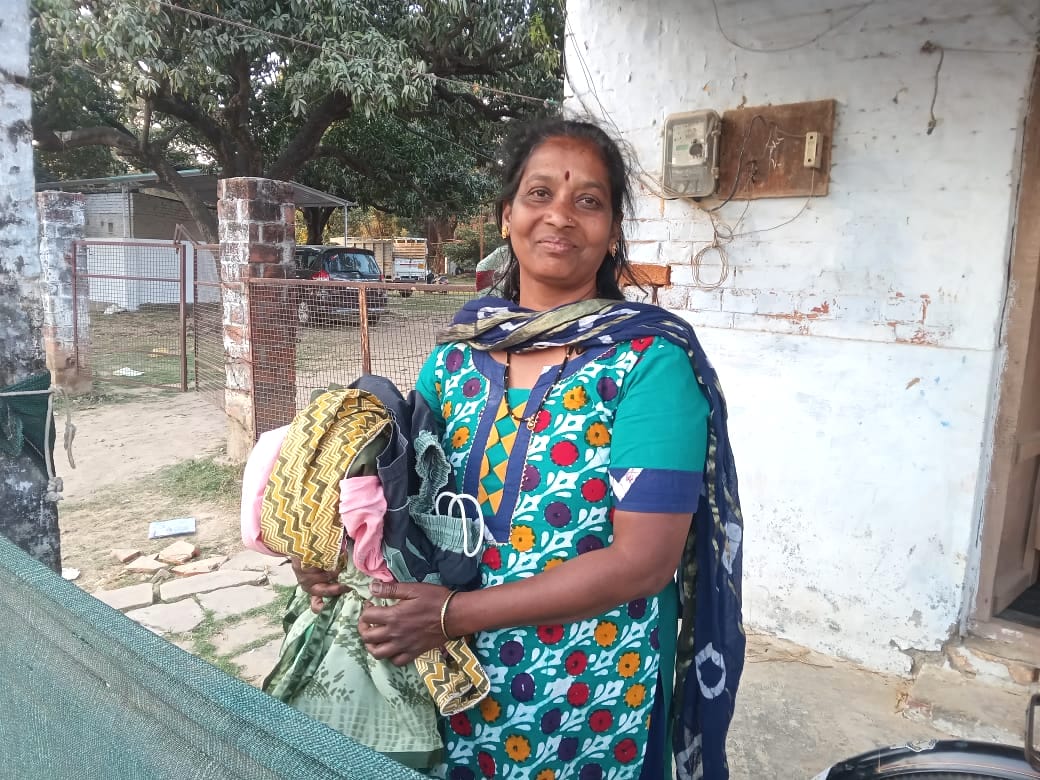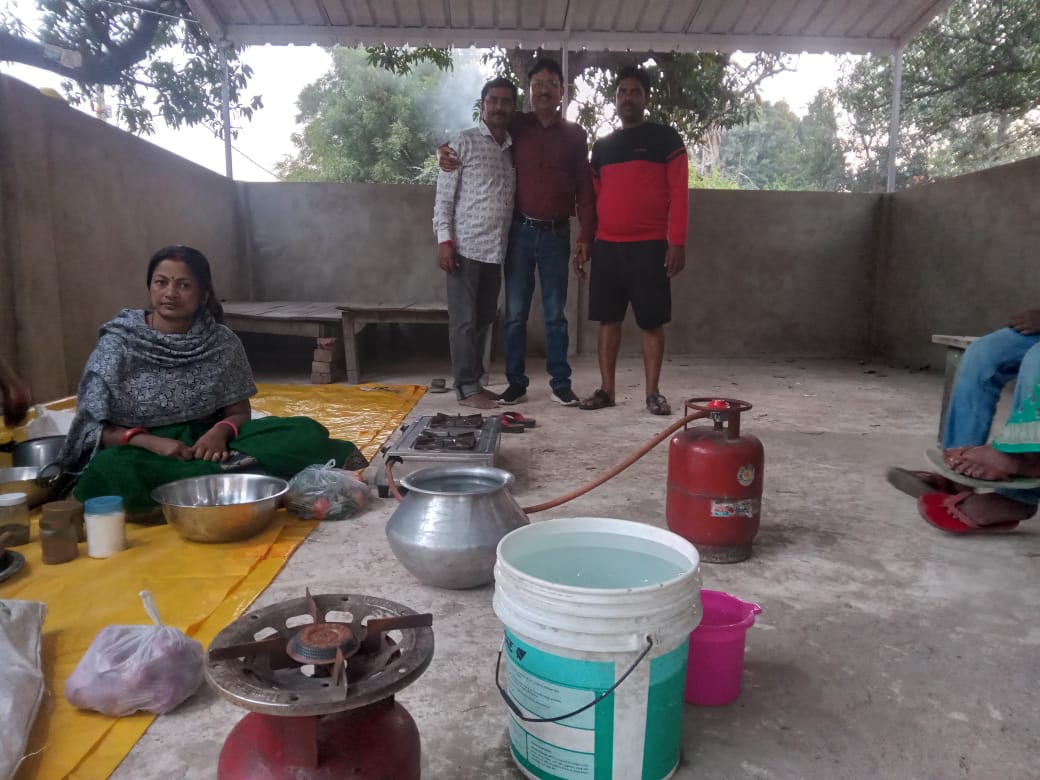.jpg)
Tarique Anwar/New Delhi
Thousands of Hindu pilgrims have been reaching Varanasi since Maghi Purnima (January 12), an auspicious day when Hindus take a ritual bath in the Holy Ganga and many cannot find affordable accommodation.
On the Maghi Purnima days, Mohammad Saleem Merchant, a local trader, was passing through the bustling Mint House Road of the city, where he found one such group of elderly women, young girls, and children stranded. They looked helpless and he quickly decided to open the doors of his house for them.
Saleem’s residence has since served as a no-expense homestay to some 300 pilgrims, who have arrived in the ancient city to take a holy bath in this ongoing holy month. The tradition is that people visiting Mahakumbh at Prayagraj also visit Varanasi to take a dip in the Ganga.
Saleem has so far hosted devotees from Haryana, Rajasthan, West Bengal, Maharashtra, Gujarat, Bihar, Jharkhand, Karnataka and Tamil Nadu. They carry not only the blessings of Maa Ganga but also the goodwill and warmth shown by their host who is not a Hindu.

Jyoti Godse of Vadodara, Gujarat, who stayed at Saleem’s house, says, “After we arrived in Varanasi, we could not find a room. We had to stay in a parking yard near Mint House. As we were struggling for food and other necessities, a Muslim brother (Saleem) offered us his house. His help was especially commendable for the women in such a crowded environment. We are grateful to him.”
Vaishali of Baghpat, Uttar Pradesh also staying at Saleem’s home said. “The Hindu-Muslim issue is political, and we need to understand it. We are brothers and sisters. A Muslim brother helped us. We stayed at his house where he and his wife took excellent care of us”.
Munidev, who came from Muzaffarpur, Bihar, came to Varanasi with his elderly parents, two women, and young children and they also stayed at Saleem's house.
"Only two or three percent of people try to create a rift between the two communities. However, sensible people know that the welfare of the country and society lies in unity, not in fighting. After the stampede in Prayagraj, thousands of people took shelter in mosques and prayer halls. Muslim brothers extended their wholehearted support. Here in Varanasi, peace-loving Muslims are also leaving no stone unturned to ensure that the Hindu devotees do not face any difficulty. This city is truly living up to the meaning of ‘Atithi Devo Bhava’ (Guest is God). We cannot thank Saleem bhai enough for his help and support," he said.
Anita, who was cooking food in the premises of Saleem’s house said, “I had never done such a virtuous pilgrimage in my life. After arriving in Varanasi from the Kumbh Mela in Prayagraj, I was filled with doubts and anxiety about our stay. I came across Saleemji’s house, where other pilgrims were staying. He was kind enough to let us in for no charges. I pray to Maa Ganga and Baba Vishwanath for his family’s welfare and happiness.”
She said this experience made her believe in the goodness of humans.

Saleem, a sari trader, told Awaz-the Voice that he has always been inclined to help people. “I come from Prime Minister Narendra Modi’s constituency (Varanasi). The ethos of the city is ‘Atithi Devo Bhava’. Whoever comes to Kashi for Maa Ganga’s holy pilgrimage is our guest. PM Modi and CM Yogi have worked hard to ensure that pilgrims do not face any difficulties. As a resident of the holy city, it is our moral duty to play our part. Offering assistance and facilities to Hindu pilgrims is my small effort.”
He said he was merely doing “‘Khidmat-e-khalq’ (service to humanity), a fundamental teaching of Islam and Prophet Muhammad.
“When I saw the plight of people stranded in the cold, with no place to stay and women and children lacking basic facilities like lavatories, I had to help. I also learned that many hotels and restaurants were running out of food and water due to the overwhelming number of visitors.”
Seeing some 2-3 crores pilgrims descend in the holy city in a few days, “I realised it was time for me to do my part in reaching out to people. I opened my house to visitors.”
“When Allah did not differentiate between religions and castes in creating humanity, who are we to do so? No religion teaches bias based on faith, caste, or creed. All religions emphasise selfless service to others, regardless of their beliefs,” he says.
How could he afford to feed too many people? Saleem said most pilgrims were provisions and cooking burners. “They just need a safe place to stay and cook their food, which I have provided. I cover any incidentals.”
Saleem’s elder daughter is pursuing a B.Ed degree and the second one is studying for an M.Sc. in physiotherapy while his son is about to graduate in commerce.
ALSO READ: Why did Maulvi Abdul Aziz come to 1941 Allahabad Kumbh Mela
“I am married to a Christian woman who holds two master's degrees in history and psychology,” he says, with a smiles on his face. This is not the first time he is doing this kind of charitable work, he has helped others in the past as well on different occasions. “I have been engaged in social services for a long time. It gives me inner peace and self-satisfaction. And at the same time, it allows me to please my God,” he says.
